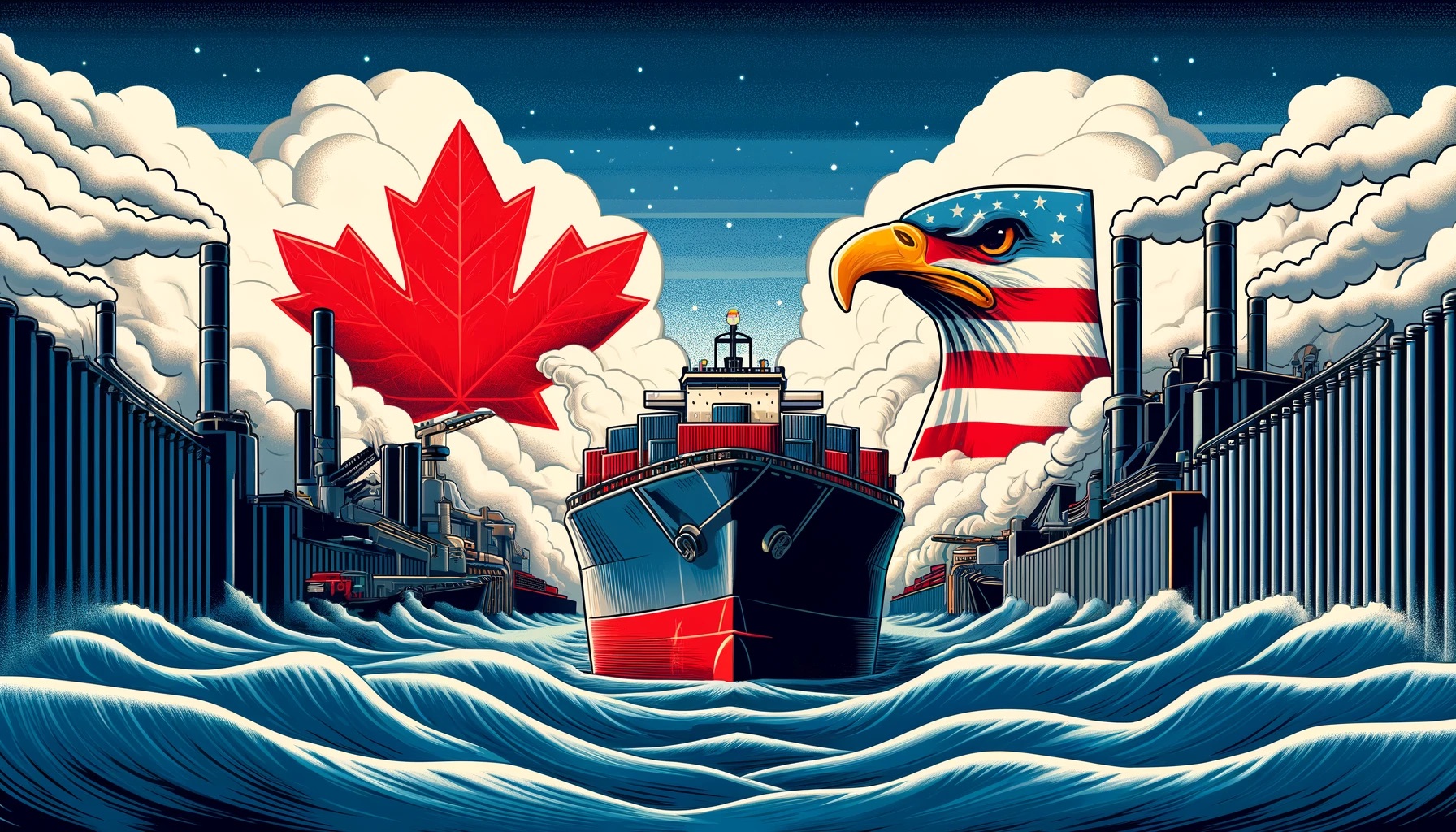Japan's Komatsu braces for challenges as Canada’s tariff threats on U.S. mining equipment exports spark concerns, raising stakes for the world’s second-largest construction machinery company under Trump’s trade agenda.
Canada’s Retaliatory Tariffs Pose Major Risk for Komatsu
According to the CEO of the Japanese heavy-duty equipment manufacturer Komatsu, the greatest threat to their company's bottom line from Trump's administration is not the tariffs themselves but rather the possibility of retaliation duties levied by Canada against mining machinery manufactured in the United States, Investing.com reports.
According to one international manufacturer, Trump's campaign promise to impose taxes on goods imported from China, Canada, and Mexico could have far-reaching consequences once he assumes office, particularly if the countries in question choose to impose trade barriers in response.
The United States is home to over 8,000 Komatsu employees, and the region accounts for over 25% of the business's sales. Komatsu is the world's second-largest construction machinery company, behind Caterpillar.
Canadian Tariff Concerns Overshadow Other Trade Risks
"My biggest concern" when Trump's second term begins next month, according to Chief Executive Hiroyuki Ogawa, is the prospect of retaliatory tariffs by Canada, the top export destination for the mining equipment made in the United States.
Ogawa stated, "We are an exporter in America," and went on to say that since acquiring Joy Global, a mining machinery producer based in Milwaukee, Komatsu has been able to outperform its imports by almost $1 billion annually in the United States.
"We're basing our business on free trade," Ogawa stated. "A tariff war could land a one-two punch on us."
Components headed for the United States, including sheet metal sourced from China, would be "not very big" hit by the proposed tariffs, but they may be lessened in the next two to three months if suppliers shifted their focus to Southeast Asia, for example.
Komatsu’s U.S. Investments Continue Amid Trade Uncertainty
Ogawa argued that Trump's pledge to maximize fossil fuel use will help offset the declining demand for heavy machinery in the US caused by an excess of rental options, in addition to trade policy.
Regardless of the president, Ogawa said that Komatsu would continue to invest in the US, spending $80 million on an Arizona mining equipment repair center and $65 million on ABS, a battery company based in Detroit that Komatsu acquired last year.
Ogawa anticipates a "challenging" business environment in the upcoming fiscal year commencing in April, since worldwide demand is expected to remain unchanged. As supply chains normalize, he said, he is worried about growing fixed costs and less opportunities for price hikes.
Komatsu’s Profit Outlook Highlights Fiscal Challenges
Operating profit for the current fiscal year ending in March 2025 is 573 billion yen ($3.65 billion), a decrease of 5.6% from the previous year, according to Komatsu.



 Global Markets Slide as AI, Crypto, and Precious Metals Face Heightened Volatility
Global Markets Slide as AI, Crypto, and Precious Metals Face Heightened Volatility  Gold and Silver Prices Slide as Dollar Strength and Easing Tensions Weigh on Metals
Gold and Silver Prices Slide as Dollar Strength and Easing Tensions Weigh on Metals  Norway Opens Corruption Probe Into Former PM and Nobel Committee Chair Thorbjoern Jagland Over Epstein Links
Norway Opens Corruption Probe Into Former PM and Nobel Committee Chair Thorbjoern Jagland Over Epstein Links  Asian Markets Slip as AI Spending Fears Shake Tech, Wall Street Futures Rebound
Asian Markets Slip as AI Spending Fears Shake Tech, Wall Street Futures Rebound  Ukraine-Russia Talks Yield Major POW Swap as U.S. Pushes for Path to Peace
Ukraine-Russia Talks Yield Major POW Swap as U.S. Pushes for Path to Peace  Japan Economy Poised for Q4 2025 Growth as Investment and Consumption Hold Firm
Japan Economy Poised for Q4 2025 Growth as Investment and Consumption Hold Firm  U.S. Stock Futures Edge Higher as Tech Rout Deepens on AI Concerns and Earnings
U.S. Stock Futures Edge Higher as Tech Rout Deepens on AI Concerns and Earnings  UAE Plans Temporary Housing Complex for Displaced Palestinians in Southern Gaza
UAE Plans Temporary Housing Complex for Displaced Palestinians in Southern Gaza  TrumpRx Website Launches to Offer Discounted Prescription Drugs for Cash-Paying Americans
TrumpRx Website Launches to Offer Discounted Prescription Drugs for Cash-Paying Americans  U.S. Lawmakers to Review Unredacted Jeffrey Epstein DOJ Files Starting Monday
U.S. Lawmakers to Review Unredacted Jeffrey Epstein DOJ Files Starting Monday  Pentagon Ends Military Education Programs With Harvard University
Pentagon Ends Military Education Programs With Harvard University  Iran–U.S. Nuclear Talks in Oman Face Major Hurdles Amid Rising Regional Tensions
Iran–U.S. Nuclear Talks in Oman Face Major Hurdles Amid Rising Regional Tensions  Trump Lifts 25% Tariff on Indian Goods in Strategic U.S.–India Trade and Energy Deal
Trump Lifts 25% Tariff on Indian Goods in Strategic U.S.–India Trade and Energy Deal  Ohio Man Indicted for Alleged Threat Against Vice President JD Vance, Faces Additional Federal Charges
Ohio Man Indicted for Alleged Threat Against Vice President JD Vance, Faces Additional Federal Charges  U.S. Announces Additional $6 Million in Humanitarian Aid to Cuba Amid Oil Sanctions and Fuel Shortages
U.S. Announces Additional $6 Million in Humanitarian Aid to Cuba Amid Oil Sanctions and Fuel Shortages  Asian Stocks Slip as Tech Rout Deepens, Japan Steadies Ahead of Election
Asian Stocks Slip as Tech Rout Deepens, Japan Steadies Ahead of Election  Oil Prices Slide on US-Iran Talks, Dollar Strength and Profit-Taking Pressure
Oil Prices Slide on US-Iran Talks, Dollar Strength and Profit-Taking Pressure 





























